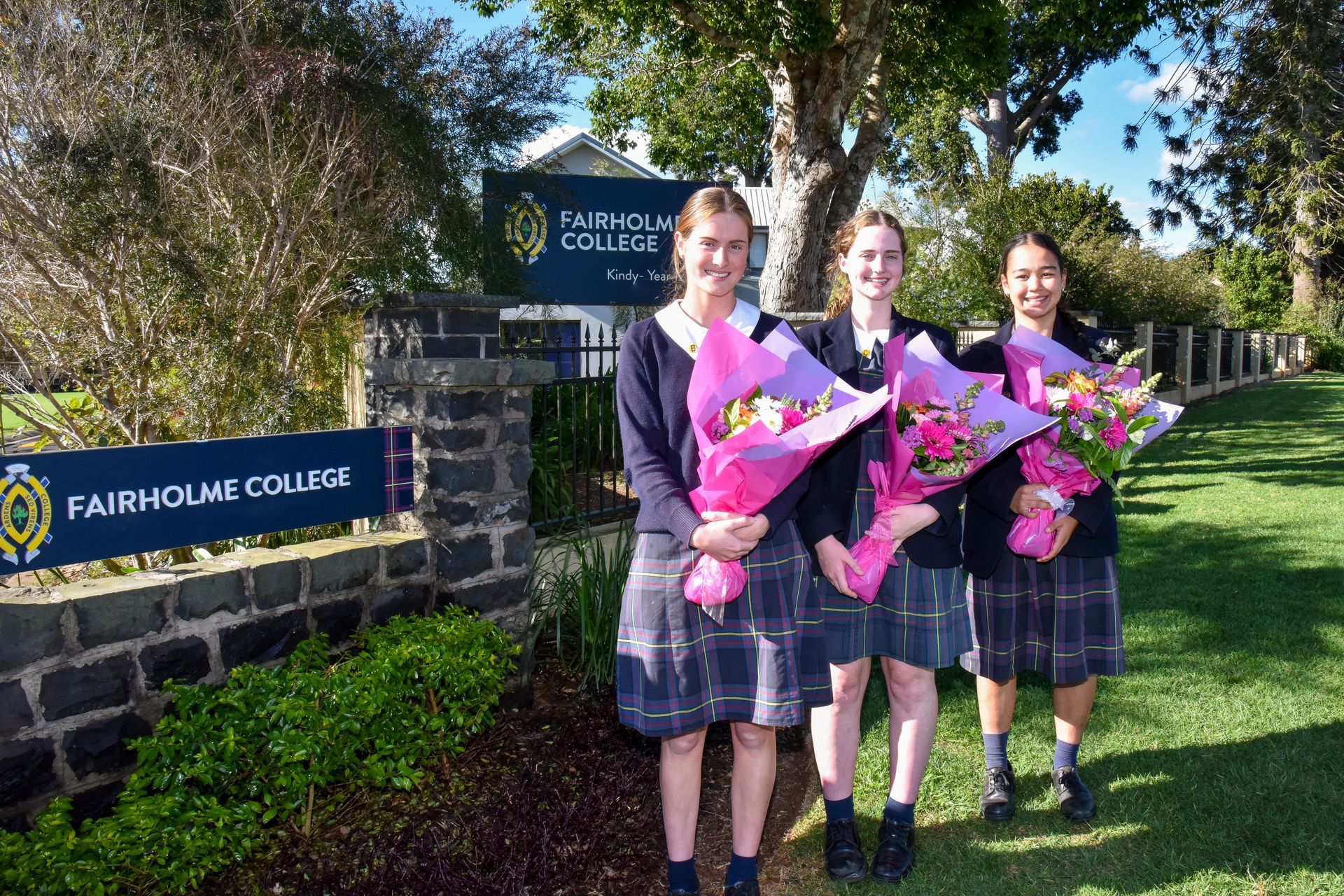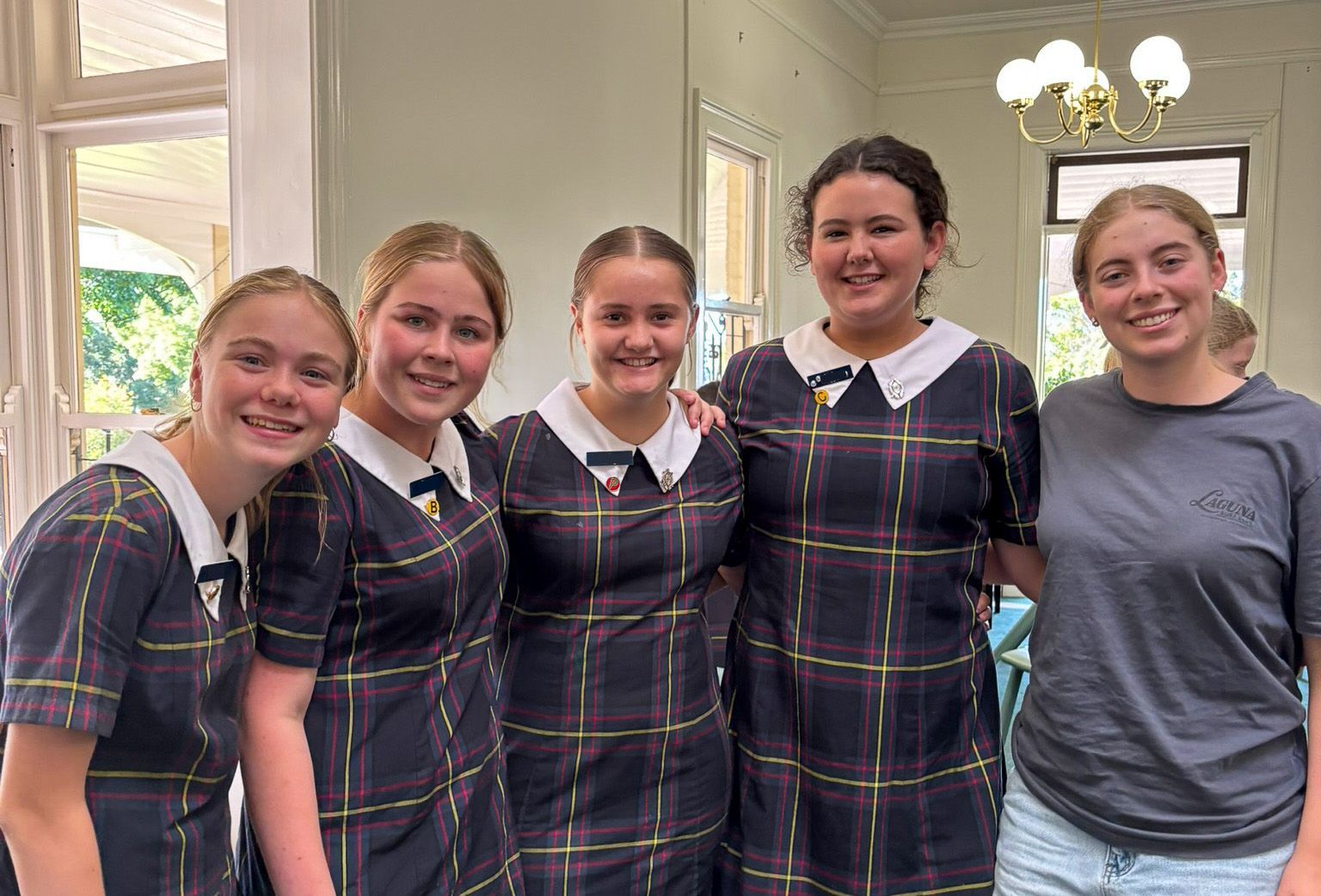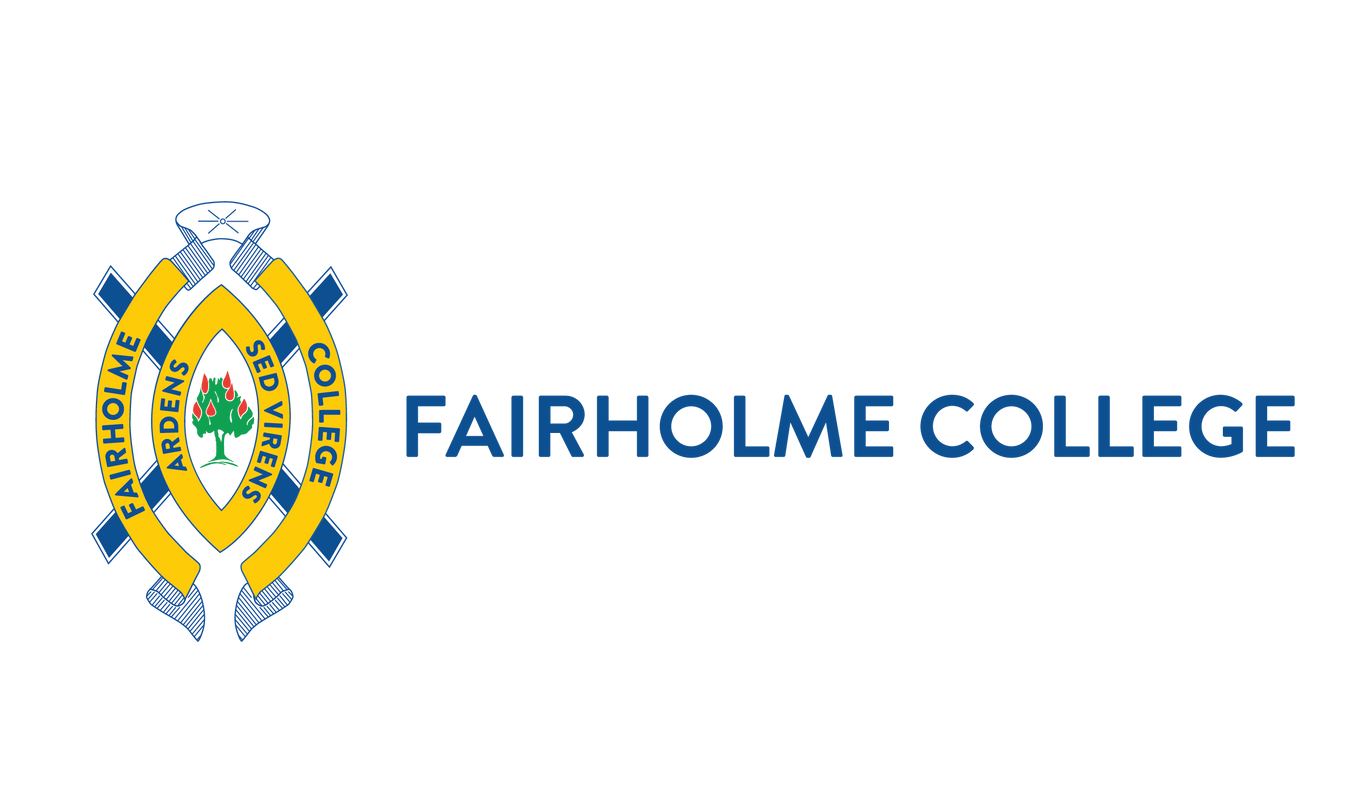Importance of Circles
Circles work for one reason-the absence of a power position (Adam Voight)
One of the most rewarding aspects of my role is conducting enrolment tours. These tours provide the pleasure of meeting new prospective students and their families and also gives me the opportunity to proudly highlight the many exceptional initiatives at Fairholme. During a recent tour, a prospective student and her family inquired about the prevalence of circles at Fairholme, referring to the various circular seating arrangements and spaces throughout the college. Their observation allowed me to discuss Fairholme's emphasis on wellbeing and our core value of Connection.
In response to their inquiry, I asked the student where she had noticed circles. She mentioned observing a class seated in a circle at the back of a traditional classroom, as well as the yarning circles in both the Kindergarten and Senior School areas. Additionally, she noticed the circular dining tables in our Homestead, which were arranged for an event, and in the dining room where students have their morning tea and lunch. I was impressed with this student’s keen eye.
As a history teacher, I am, of course, interested in the origins of everything, and when putting together this article, I felt it was appropriate to research the history of circles and circle time.
My research found that throughout history, the practice of sitting in a circle has been integral to various cultures and societies. In Australia, the tradition of talking circles has deep roots in First Nations culture. Fundamentally, participants gather in a circle to discuss a problem or question that has been posed. The circle typically commences with a prayer, often led by the facilitator or an elder. A talking stick is passed to each speaker as they share, ensuring everyone's voice is heard. The emphasis is on speaking and listening from the heart, with the discussion continuing for as long as necessary.
Similarly, ancient Celtic and Norse societies held councils and rituals in circular formations, such as at Stonehenge, this practice was believed to facilitate divine communication. In classical antiquity, the Greek symposium featured circular seating to encourage dialogue on philosophy, politics, and poetry, while the Roman Senate used a similar arrangement for deliberative assemblies, this model emphasised equality among senators. During the medieval period, the legend of King Arthur included the Round Table, where the king and his knights sat in a circle to promote equality and unity.
Circles at Fairholme
At Fairholme, we hold the belief that when students frequently gather in circles, they cultivate a sense of belonging within the group, thereby fostering a stronger community. We also believe that circles can teach our students some of the necessary skills on how to live and work in a community that promotes care, respect, and accountability.
Research in this area indicates that the circular configuration naturally fosters opportunities for participants to learn about and understand one another, thereby promoting harmonious coexistence (Armstrong & Vinegard, 2014). The setup necessitates that members be physically present for each other more so than traditional classroom arrangements, addressing two basic human needs: the need to belong and the need to be unique (Szal, 2019). By creating safe spaces for feedback and development, circles encourage healthy and productive conflict resolution, building trust and promoting healing. This environment ensures that participants can share their opinions without interruption or judgment, allowing everyone to be heard and respected. Additionally, circles broaden participants' perspectives, facilitating a deeper understanding and connection within the group (Burt, Davies, & Drakeford, 1999).
Aboriginal people are taught to respect silence as a pedagogical tool. In circle, we listen ‘as witnesses’, respectfully, to the experience of others. (Graveline, 1998)
It is for these reasons, that we promote the use of circles in both academic and social time at Fairholme and provide professional development to all teachers on how to manage circle time effectively. Please see below some examples of us using circles at Fairholme.
Holme Group
Since 2022, we have encouraged teachers to conduct their Home Group sessions in a circle formation. Examples of activities in these sessions include discussions, games, and wellbeing check-ins. A benefit of circles in homegroup time is that circles are designed in a way that allows us to slow down, allowing a student’s inner voice to emerge. Typically, amid group interactions, in a more formal classroom setting, nerves often prompt mental rehearsals of students’ responses which can stem the flow of a rich conversation. However, in the circle-structured classroom set-up, students are prompted to foster attentive listening and authentic engagement as much as possible.
This year, Home Group teachers have noted that circles have led to more honest discussions and improved student attentiveness in their Home Group. Additionally, the circles have reduced digital distractions, fostered a supportive environment for cold-call questioning, and provided valuable opportunities for peer reflection.
All of our staff have received training in circle facilitation from Jane Langley and Sue Chandler, experts in circle time.
Boarding House
This year, the Boarding House made a change to the furniture arrangement in the dining hall. With the support of a donation from the Parents and Friends Association, we were able to replace the rectangular tables with round tables for groups of 10 students across grades 7-12 to eat their meals each day.
Our Deputy Head of Boarding, Lindy Masters, shared her thoughts on the success of our recent change. She told me, "The new circular tables really bring everyone together. They help our girls engage in a more inclusive and positive way. Sitting at a round table encourages eye contact, which is the first step to meaningful conversation. Plus, it has increased conversation amongst students and allows everyone to read each other's emotions, fostering empathy and kindness, especially when someone is feeling down’’.
Yarning Circles
Yarning circles have been used at Fairholme since 2019, first in the Kindergarten and, more recently, in the Senior school.
Since its inception in 2019, the yarning circle in the Kindy has played a significant role in the education of the College’s youngest students. It is a beautiful space that has evolved to include bush tucker plants, metal animals in the trees, symbolic pavers, and totems. Designed by First Nation’s boarders of previous years, the stones represent Toowoomba's swamp and creek. The yarning circle is integral to the Kindy routine, starting with an acknowledgement of country and discussions on earth care, fair share, and people care, often linked to First Nation’s wisdom. Visits from Carbal Elders, like Uncle Doug, highlight the importance of inclusivity and equality in the circle. Kindy students are taught respect and care for this special communal space. Additionally, a new yarning circle has been built in the senior school near the boarding house for use by all students, both during classes and during their morning teas and lunchtimes for students to sit, be still and enjoy the company of each other.
We will continue with our work on Circles in 2025, looking at how circles can play a more active role in our academic classes to benefit all students.
References
Armstrong, M., & Vinegrad, D. (2023). Working in circles in primary and secondary classrooms. Woodslane Pty Limited.
Burt, S., Davies, G., & Drakeford, P. (1999). Six years of circle time : A curriculum for Key Stages 1 & 2. Lucky Duck.
Graveline, F.J. (1998). Circle works: Transforming Eurocentric consciousness. Halifax, N.S: Fernwood. P.145
Szal, R. (2019, February 05). 10 benefits you're missing by not circling up at work. Medium. Retrieved June 06, 2024.
Voigt, A. (2020, July). Restoring teaching: How working restoratively unleashes the teacher and school leader within you. Adam Voigt.
More News…







